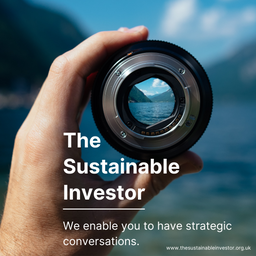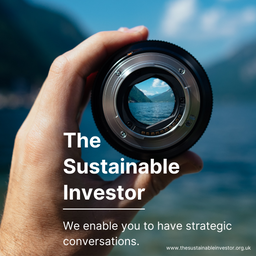
Sunday Brunch: investment, buybacks, and CEO tenure
If a CEO knows they might not be in the job for long, they might focus on short term wins over long term value creation. As shareholders we need to be vocal in our support of good investment, even if it has a long payback.
“The average UK CEO is in place for 5.2 years” UK Spencer Stuart Board review
You may have spotted that this Sunday Brunch didn't actually get published until Tuesday - life (in this case family life) got in the way.
According to data from Russell Reynolds Associates, the average UK CEO term estimated by Spencer Stuart is on the short side of the global average. The Russell Reynolds Global CEO Turnover Index Annual Report highlighted that "the overall average length of service stands at 7.4 years though there are some notable outliers with the DAX 40 (8.4 years), Euronext 100 (9 years), and the STI 20 (11.1 years) all experiencing longer tenure." Remember averages hid a multitude of differences, especially between industries.
Last week I wrote about sustainability, re-investment and share buybacks. One point I made was that share buybacks can be a good use of surplus cash if the company does not have suitable (ie value creating) investment opportunities.
Why might CEO tenure make a difference to the investment vs buyback decision?
What if the payback period for the investment is long, as it sometimes is. Our experience as investors has been that many investments take a few years to be properly identified, planned and then implemented. And the benefits often do not flow for a few more years after that. If you are the average UK CEO, who is in the role for just over five years, you might be reluctant to make the investment, preferring instead to put your money to work on projects, such as cost cutting, that give a shorter term gain. Or you might decide on balance that share buybacks look more appealing.
I would argue that this is particularly relevant for some sustainability related investments, where the timing of the external change that would make the investment positive, can be harder to estimate.
Think EV's in Europe. Despite the existence of apparently hard regulatory targets, investing in higher levels of EV production involves considerable uncertainty.

The good news is that shareholders can make a difference. By actively supporting management teams that implement value creating investments that can take years to come to fruition, they can help to offset the temptation to go for quick wins. And by doing so, encourage companies to create a more sustainable future.
Investments vs buybacks and CEO incentives
The thought process behind this blog started with a recent posting from the Harvard Law School Forum on Corporate Governance. This looked at CEO Succession Practices in the Russell 3000 and S&P 500.

The full paper is worth a read, but the section I want to highlight relates to the impact of share price performance. To quote the report "in 2024, nearly half (45%) of Russell 3000 companies that changed CEOs had one-year total shareholder return (TSR) below the 25th percentile, which has gradually increased from 30% in 2017. The S&P 500 displayed a similar pattern, with 42% of succession cases occurring at lower-performing companies—increasing from 29% in 2017. "
If I was a CEO looking at this data I might be tempted to think, let's focus on those actions that will give a quicker financial return. This could include cost cutting and share buybacks (which can make EPS higher). And by implication, let's minimise those investments that will take many years to show a benefit.
This will probably not be the best outcome from a shareholder value creation perspective, but it would be an understandable reaction. CEO's are human after all.
Being clear about what sustainable investing is about
Before we consider what shareholders can do to encourage investment, especially sustainability related investments with long term paybacks, it's worth reminding ourselves of the limits of shareholder power. My 'go to' article on this reports the analysis by Gosling & Walkate (published by the ecgi). It asks "does sustainable investing work"?

They make the distinction between two types of sustainable investing. The first is the one that we are covering in this blog.
This starts from a "focus on financial returns and considers how sustainability issues could impact these. This approach complements traditional financial analysis".
This is where we look at those sustainability issues that have, or could have, financial consequences for the company in the long run. Obvious examples include possible future regulation and changing customer demands. It's important to note that we are not arguing that these changes (ie new regulation) will definitely happen. What we are saying instead is that such changes could happen (are probable) and if they do, then the consequences for the company could be material.
Anticipating and preparing for these can reduce the long term risks faced by the company, or open up new opportunities. This type of sustainability issue, and we argue there are more of them than you first might think, are a legitimate area of interest for investors.
The other type of sustainable investing is where investors target some sort of financial return, but with a key objective being to deliver positive outcomes for people and the planet, while avoiding negative ones. Gosling & Walkate argue that delivering change via this type of investment is challenging for investors. This is outside of the scope of this blog and a debate for another day.
The role of shareholders in encouraging investment
By now it should be clear what action I think shareholders should take to encourage reluctant CEO's to invest in the future of the company, rather than returning cash to shareholders.
It's being clear where our priorities lie - in the long term future of the business, not in short term gains.
My experience has been that where management teams and boards know that shareholders support long term investments. And where the company has been clear in explaining the motivations and the long term benefits of the investment, then the share price need not suffer from the short term financial pain the changes inflict. And this can make CEO's more willing to risk being sacked.
But as shareholders we need to be clear, we need to shout out that we support investment. It's no use being silent and thinking that the company knows our views. There will always be those who advocate cost cutting and breakups, often for a near term financial win. And they will be vocal in promoting their views to all who will listen, including the financial press.
Sadly, investor communication can be a case of 'who shouts the loudest'. So we should not be afraid of voicing support when it is deserved.
One last thought
We need to avoid over emphasising the certainty of regulation. There can always be a Donald Trump waiting around the corner. And even when the political change is less dramatic, our observation is that politicians can change their minds. As much as we would like to think that once regulation is agreed, it will be implemented, recent experiences in Europe suggest otherwise.
The good news is that in the long term this can be less of an issue. The history of environmental regulation in the US shows us that change can happen, and that regulation can be effective. It's just it can take a long time.

Please read: important legal stuff.





